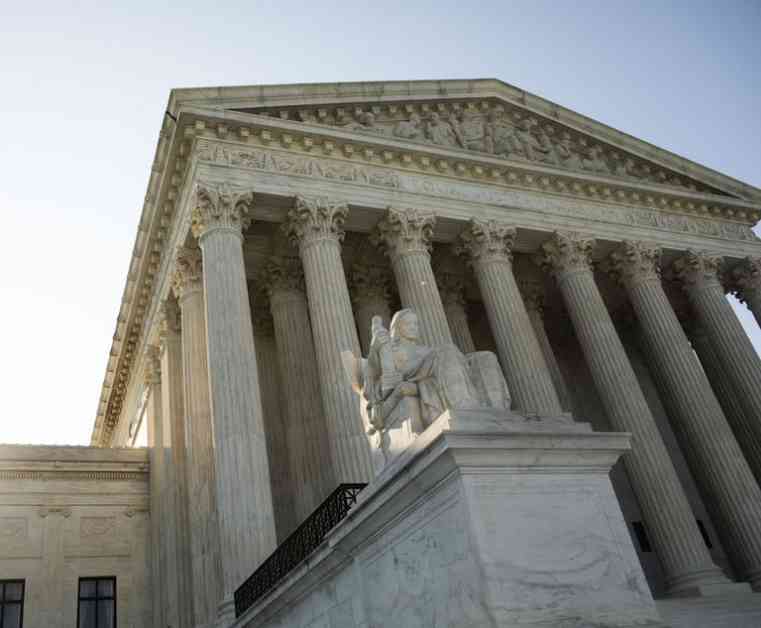The U.S. Supreme Court recently made a significant decision regarding the revised Title IX rules, choosing not to intervene in the Biden administration’s efforts to enforce expanded protections for LGBTQ+ students. This decision came as a blow to the administration’s hopes of offering increased support for marginalized students, but it also highlighted the ongoing legal battles surrounding Title IX regulations.
Background on Title IX Rules
Title IX is a federal law that prohibits discrimination on the basis of sex in any educational program or activity that receives federal funding. Over the years, the law has been expanded to include protections for LGBTQ+ individuals, ensuring that they are not subjected to discrimination or harassment in educational settings. The Biden administration sought to further bolster these protections by implementing new Title IX rules aimed at supporting LGBTQ+ students.
Supreme Court Decision
In a per curiam opinion issued late Friday, the Supreme Court denied the Biden administration’s request to enforce the expanded Title IX rules while they are being challenged in lower courts. The Court stated that the Department of Education had not provided sufficient evidence to justify overturning the lower courts’ interim conclusions that certain provisions of the new rules may be unlawful.
This decision effectively puts a hold on the implementation of the expanded Title IX rules, leaving LGBTQ+ students in a state of uncertainty regarding their rights and protections in educational settings. It also underscores the complexities and challenges of navigating legal battles surrounding civil rights issues.
Implications for LGBTQ+ Students
The Supreme Court’s decision not to intervene in the enforcement of the revised Title IX rules has significant implications for LGBTQ+ students across the country. Without the expanded protections offered by the new rules, these students may continue to face discrimination, harassment, and barriers to accessing education in a safe and inclusive environment.
The denial of the Biden administration’s request to enforce the expanded Title IX rules sends a troubling message to LGBTQ+ students, signaling that their rights and well-being may not be prioritized at the highest levels of government. It also highlights the ongoing challenges of advocating for and protecting the rights of marginalized communities in the face of legal obstacles and opposition.
Legal Challenges and Uncertainty
The legal battles surrounding the revised Title IX rules have created a climate of uncertainty for LGBTQ+ students, educators, and advocates. While the Biden administration has sought to expand protections for these students, the resistance from lower courts and now the Supreme Court has thrown the future of these efforts into question.
The ongoing legal challenges to the new Title IX rules highlight the complexities of navigating legal systems and the slow pace at which progress can be made in the realm of civil rights. For LGBTQ+ students who are already vulnerable to discrimination and harassment, the uncertainty surrounding their rights under Title IX adds an additional layer of stress and anxiety to their educational experiences.
In conclusion, the Supreme Court’s decision not to intervene in the enforcement of the revised Title IX rules underscores the challenges and complexities of advocating for LGBTQ+ rights in educational settings. While the Biden administration’s efforts to expand protections for LGBTQ+ students have faced legal obstacles, the fight for equality and inclusion continues. It is crucial for policymakers, educators, and advocates to work together to ensure that all students, regardless of their gender identity or sexual orientation, have access to a safe and supportive educational environment.















